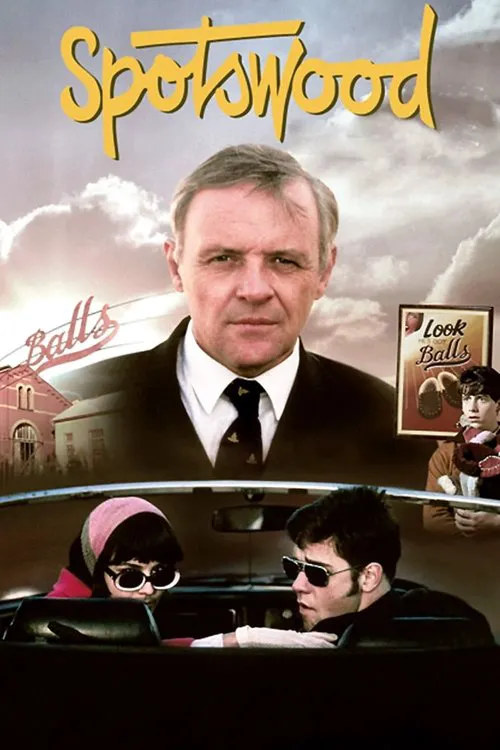Spotswood

Plot
In the movie Spotswood, Wallace (played by Anthony Hopkins), a seasoned efficiency expert, is tasked with the daunting responsibility of managing the layoffs and downsizing of a large auto parts factory. As a result of the company's declining sales, the management has deemed it necessary to make significant cuts in order to stay afloat in an increasingly competitive market. With a no-nonsense attitude and an unyielding commitment to streamlining processes, Wallace is the perfect candidate to oversee the downsizing efforts. However, Wallace's professional life is about to take an unexpected turn when he is approached by the local mayor to evaluate a small moccasin factory. Spotswood, the tiny factory at the heart of the story, appears to be a relic of the past - a charming anomaly in an otherwise rapidly changing industrial landscape. On the surface, Spotswood seems to be a quaint, old-fashioned enterprise that is out of touch with the demands of the modern world. Upon visiting Spotswood, Wallace is struck by the factory's quaint charm and the dedication of its workers. The small, family-owned moccasin factory has a warm, welcoming atmosphere, and the workers, each with their own distinct character, take obvious pride in their craft. As Wallace begins to assess the factory's efficiency, he is forced to confront the stark realities of the world around him. The moccasin factory is struggling to stay afloat due to the very same forces that have contributed to the decline of the auto parts industry - the relentless march of industrialization and the homogenization of modern society. Despite his initial skepticism, Wallace finds himself becoming increasingly drawn to the idiosyncratic workers of Spotswood. He is particularly taken by Lucy (played by Greta Scacchi), the factory's feisty and fiercely loyal owner, who is determined to keep her family's business afloat despite the overwhelming odds against her. As Wallace spends more time with Lucy and the Spotswood workers, he begins to see the world through their eyes and is forced to reevaluate his own values and approach to modernization. Wallace's transformation is not merely a personal one; it also has significant professional implications. As he delves deeper into the realities of the moccasin factory, he begins to question the efficacy of his own efficiency-driven approach. He realises that the relentless pursuit of profit and productivity has led to the dehumanization of workers and the erasure of unique, local cultures. Spotswood, in all its quaint, idiosyncratic glory, represents a world that seems to have been lost in the haste for modernization. Through his journey, Wallace begins to develop a new appreciation for the value of slow, deliberate growth, and for the importance of nurturing long-standing relationships and traditions. He comes to understand that true efficiency lies not in the swift erasure of outdated practices, but in the preservation and celebration of the distinct qualities that make a business - or a community - truly special. In the end, Wallace is faced with a difficult decision. Will he remain committed to his efficiency-driven ideology, or will he choose to walk away from the corporate world and towards a more humane, more compassionate approach to business? The movie Spotswood ultimately poses this question not merely to Wallace, but to the entire audience - challenging viewers to rethink their assumptions about progress, efficiency, and the true cost of modernization.
Reviews
Recommendations




